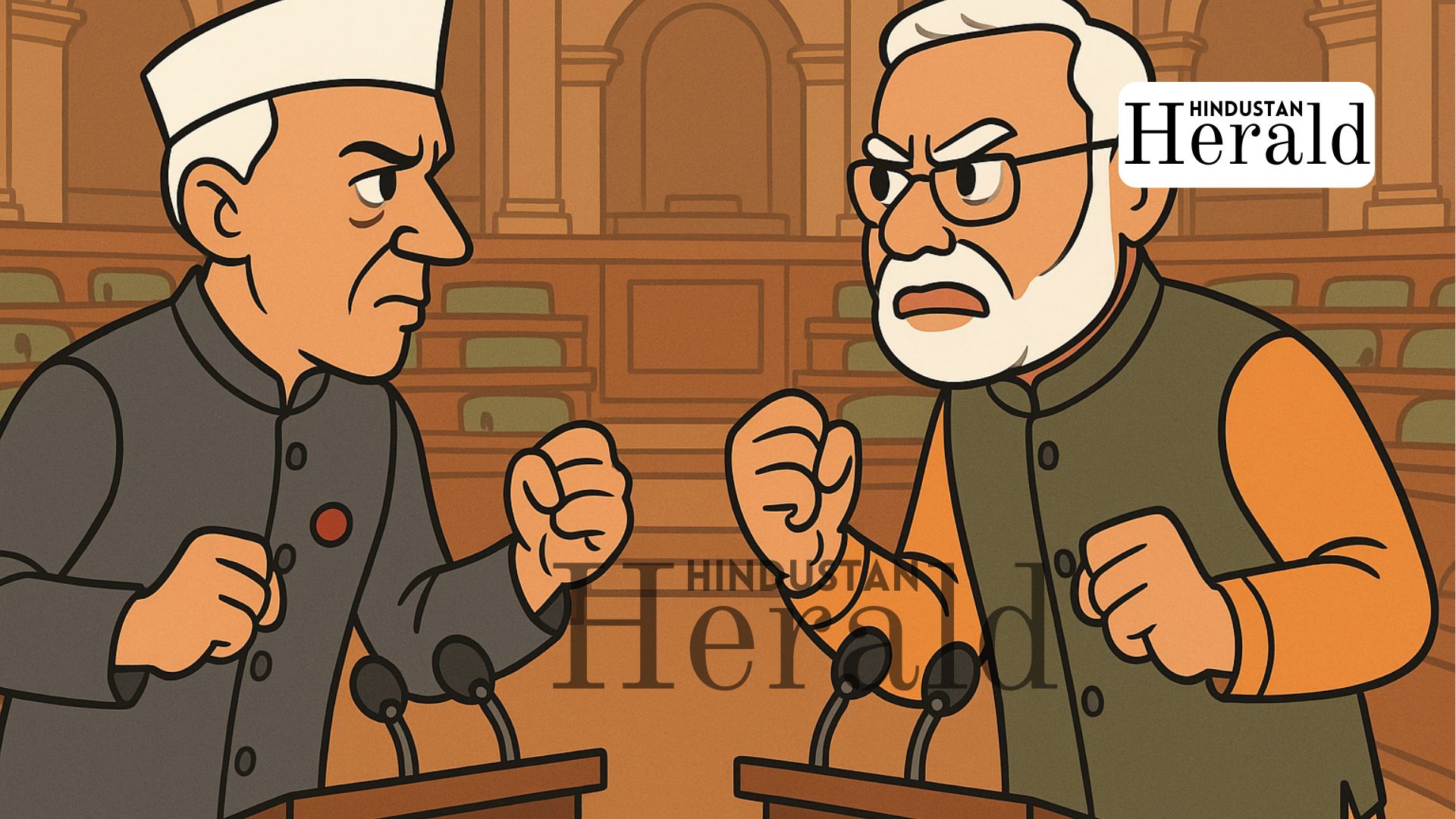New Delhi, September 15: In a rally in Assam, Prime Minister Narendra Modi dusted off one of the oldest weapons in Indian politics the memory of Jawaharlal Nehru and the 1962 war with China. He told the crowd that Nehru had “betrayed” Assam when Chinese troops poured across the border.
The Congress hit back the same day. Party leader Pawan Khera shared a recording of Nehru’s own broadcast to the nation from November 19, 1962 a somber radio address where Nehru admitted the setbacks and asked the country to stay firm. The counterpoint was obvious. Nehru didn’t abandon Assam; he faced the nation at its darkest hour.
And so, six decades on, the war that ended in retreat and humiliation is still being fought, only now on political stages.
Assam’s Raw Memory
For Modi, Assam is not a random backdrop. It was here, in towns like Tezpur, that residents fled their homes in panic as rumors spread that the Chinese army was just hours away. Shops were shuttered, families packed hurried bundles, and official records were burnt so they wouldn’t fall into enemy hands. Ask older Assamese families, and they’ll still recall that fear.
By standing in Assam and calling Nehru a betrayer, Modi tapped directly into that scar. His claim was blunt when Assam needed protection, Congress failed. And by extension, Congress cannot be trusted even now.
It’s a message the BJP has been repeating for years, but on Assam soil, it lands heavier. The local memory gives it teeth.
Congress Pushes Back
Congress didn’t wait long. They reached for Nehru’s own words. In that 1962 broadcast, Nehru spoke in a tired, heavy voice. He told Indians the situation was “grave,” admitted the Chinese had advanced, and asked people to be strong. It was not triumphal rhetoric; it was honesty in the middle of collapse.
For Congress, this is the answer to Modi’s charge. Nehru, they say, did not run away or abandon the Northeast. He admitted defeat, but he stood before the public. The BJP, they argue, wants to paint history in black and white when it was far more complex.
The War That Broke Nehru
The Sino-Indian War of 1962 lasted only a month, but it shook Nehru to the core. His faith in diplomacy and the “Hindi-Chini Bhai Bhai” slogan had left India dangerously exposed. Soldiers fought without winter clothing, with Second World War rifles against a modern Chinese army. Entire units were cut off, overrun, or forced to retreat in chaos.
Critics blamed Nehru for ignoring military readiness. His Defence Minister, V.K. Krishna Menon, became the lightning rod for public anger and resigned. Nehru himself never recovered politically or emotionally. He aged visibly after the defeat and died less than two years later.
Still, those who defend him point to the realities of that time. India in the early 1960s was still struggling to feed its population, build industry, and heal from Partition. To expect a young nation to match China’s military in the Himalayas, they argue, ignores the context.
But politics rarely has patience for nuance.
Why Modi Keeps Returning To 1962
For the BJP, 1962 is more than history it is a tool. By casting Nehru as negligent, Modi positions himself as the leader who will not repeat those mistakes. In Assam especially, the message is clear we will not leave you to face threats alone, as they once did.
The timing also matters. Assam goes to polls in 2026, and the BJP, already dominant in the state, wants to keep its grip. Congress, weakened and defensive, has little choice but to defend Nehru.
What might seem like a history lesson is in fact a campaign strategy.
Nehru’s Ghost In Today’s Politics
The tug-of-war over Nehru isn’t new. The BJP has turned him into a shorthand for Congress’s “failures.” Congress insists he was the builder of modern India. The 1962 war is the sharpest weapon in this fight, a symbol of loss that the BJP can easily revive with a few words.
And the reason it keeps coming back is simple India’s border with China is still tense. The Galwan clash of 2020, where soldiers died in hand-to-hand combat, reminded everyone that the frontier is far from quiet. Every fresh skirmish makes 1962 relevant again.
When Modi invokes Nehru, he is also drawing a line between then and now, between weakness and strength, at least in the way his government wants to present it.
Sixty Years On, Still A Battlefield
The truth is that 1962 was both a military defeat and a national trauma. For Nehru, it was the wound that ended his political aura. For today’s leaders, it is a convenient battlefield to fight old enemies and new elections.
In Assam this week, Modi’s words reopened that wound. Congress replied with Nehru’s own voice from a crackling radio broadcast. The past is still alive, still contested, and still being mined for votes.
Stay ahead with Hindustan Herald — bringing you trusted news, sharp analysis, and stories that matter across Politics, Business, Technology, Sports, Entertainment, Lifestyle, and more.
Connect with us on Facebook, Instagram, X (Twitter), LinkedIn, YouTube, and join our Telegram community @hindustanherald for real-time updates.
Covers Indian politics, governance, and policy developments with over a decade of experience in political reporting.






